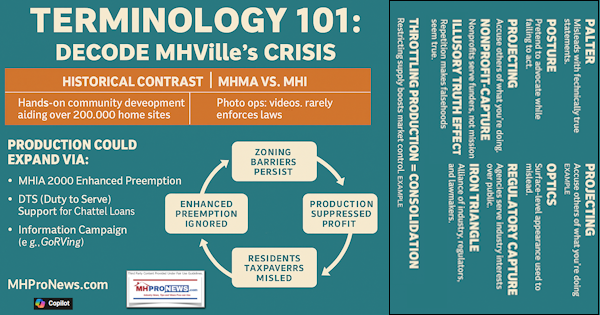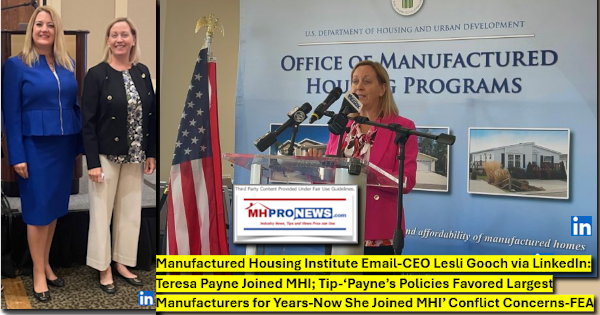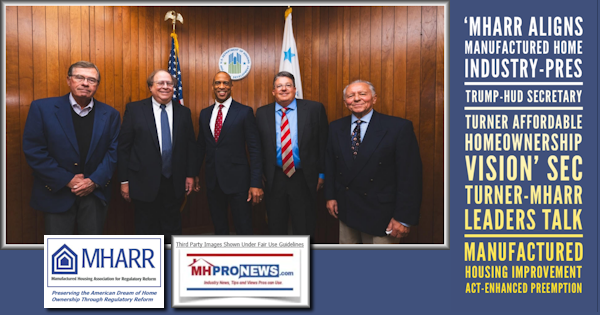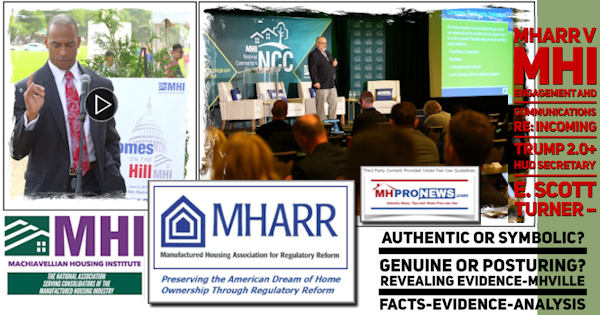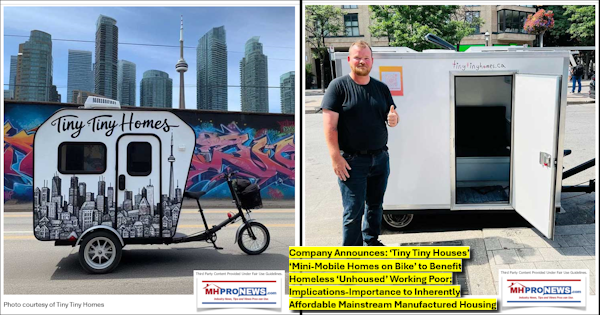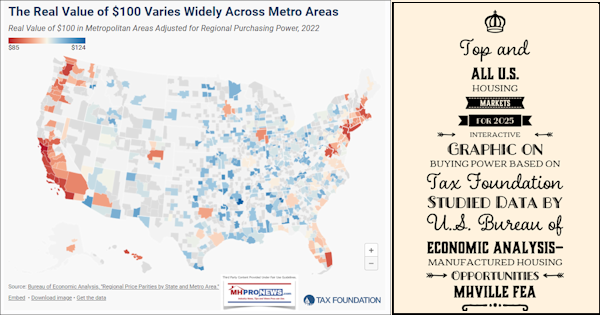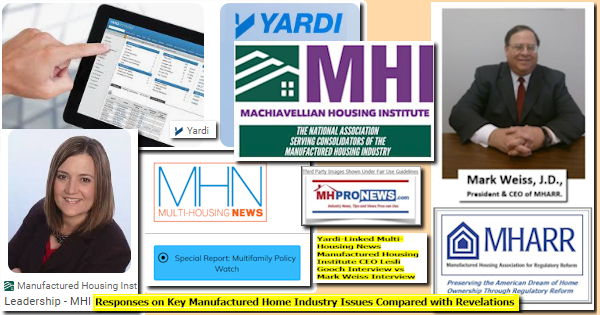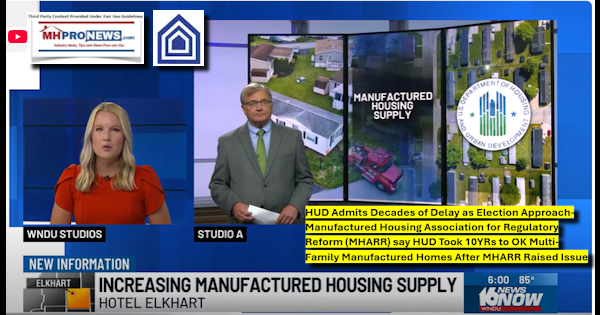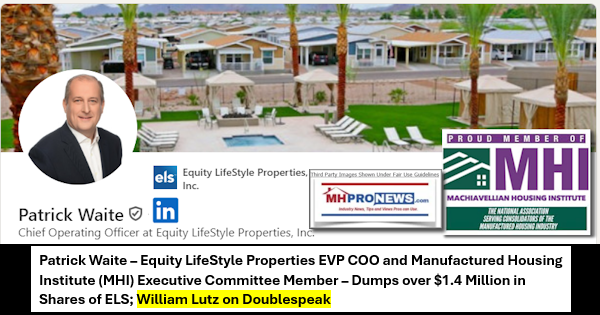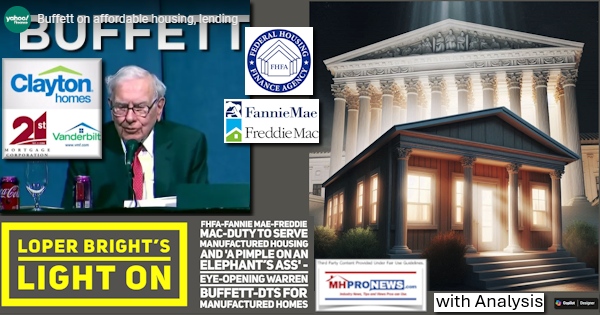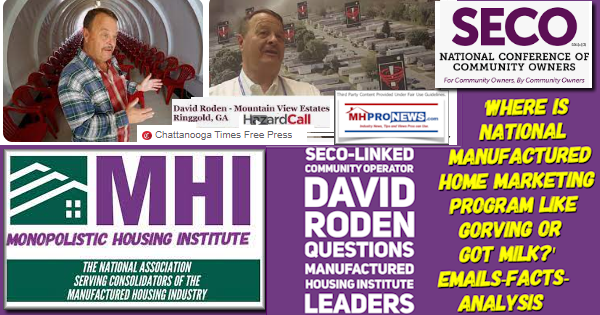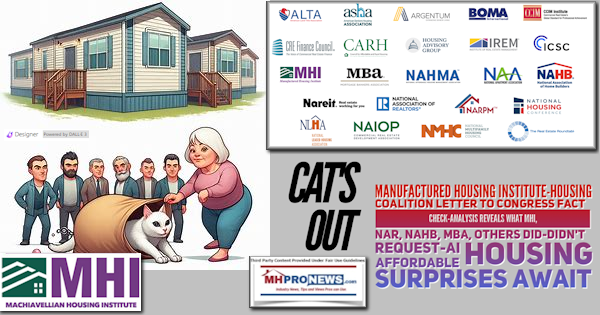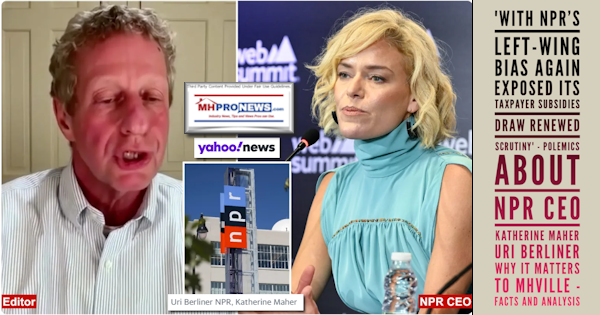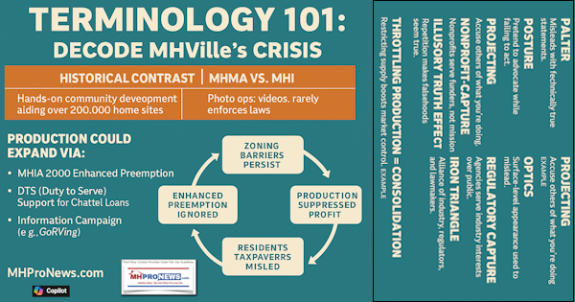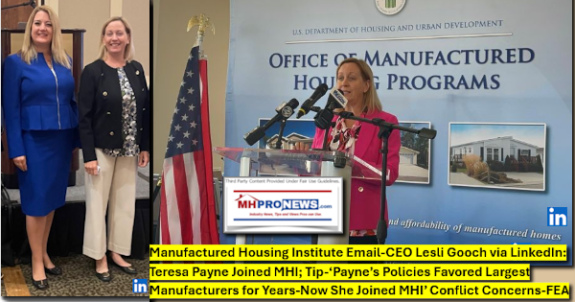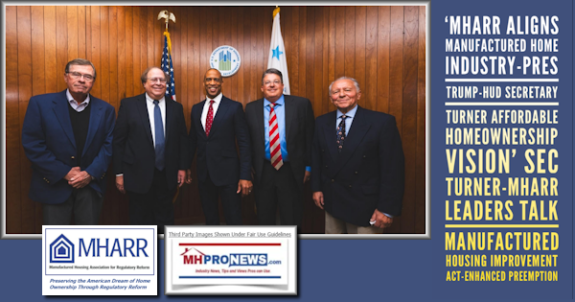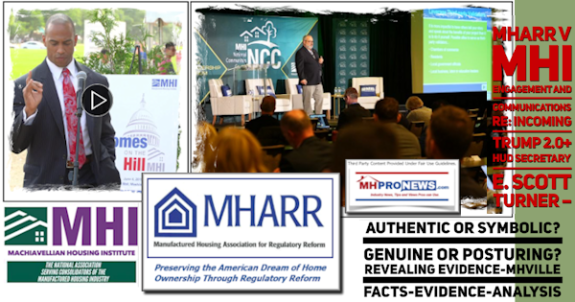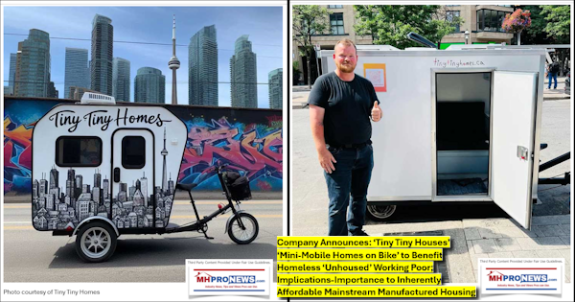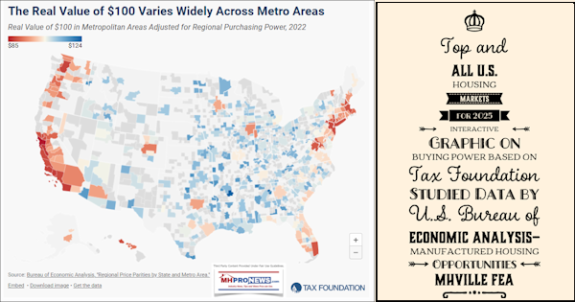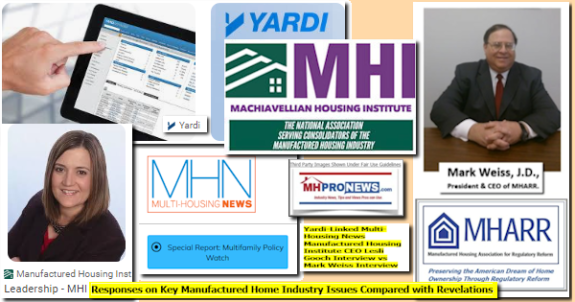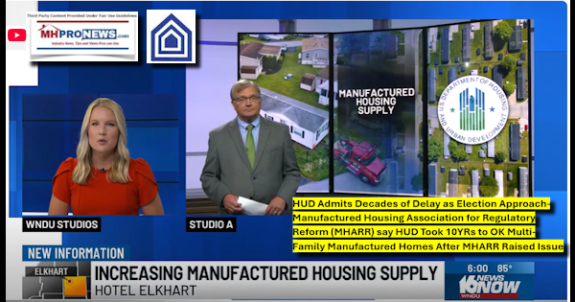This will be a lengthy report, so let’s do a quick executive summary of the points to be covered:
- FHFA Comments follow up.
- Congressman Walter Jones review
- MHI Summer Meeting Report on the Washington, D.C. Finance Meeting with Gov’t Officials and Industry Players. This may be the most important depth – eye witness – report on this topic you will find.
With those points made, let’s get started.
1. FHFA Comments follow up.
Let’s begin today with a brief note of thanks to all who sent messages last week to FHFA and to your Congressional representative and Senators. What is the outcome? Time will tell, but let me share what is known at this point.
As of 4:52 AM on 7/28/2010, there are exactly 140 posted comments on the Enterprise Duty to Serve Underserved Markets (75 FR 32099) Notice of Proposed Rulemaking. As their site shows, these are comments posted to 7/20/2010. By 1:47 PM on 7?28/2010 those numbers had grown to 216. All of these results were for comemnts sent to 7/20/2010. Here we are 8 days later, and there were 2 more days of comments. What happened those last few days before the comments cutoff?
We hope to verify this soon, but one reliable source tells us that ‘thousands’ responded to this industry wide call for action! We are also told that the FHFA’s system of online reporting got swamped and they couldn’t keep up with posting the follow-up messages from good people like YOU who want real Financing for the MH Industry! If that report is accurate, that could lead to good news indeed for all involved. Learn more here at MHMSM.com as the facts develop.
Presuming this report is accurate, that means that many Industry professionals – and customers of our industry?! – took the time and effort to make the needs known loud and clear in Washington, D.C..
This effort ‘started’ publicly with a call from MHARR, followed by a series of ‘call to action’ messages from MHI, all of which were reported here in complete detail at MHMSM.com.
Many state associations, individuals and businesses had their own initiatives to ‘rally comments for financing’ – I’d like to note Greg O’Berry from Hometown America and also Ken Rishel of Precision Financial/Chattel Finance News for their respective efforts. Our team and I at MHMSM.com personally took to the time to write, and many of us made group and individual efforts to encourage our circles of influence to act. The bottom line is, that if this effort indeed rallied ‘thousands’ of comments, there are many, many leaders who can share in the credit for this accomplishment.
All of this was covered and encouraged right here at your pro-Industry media source, MHMSM.com, in podcasts and in writing online.
So while this is still a work in progress, the government offices are bound to have taken note of this outpouring during an election year. Those on Capital Hill likely got a similar message. Government action is rarely an overnight event, but all of this brooks well for enhanced financing options for our Industry in the months ahead.
We at MHMSM.com will keep you abreast of all these events and others that are taking place in our Industry.
To all who picked up phones, sent comments and messages, contacted FHFA/Congress/Senators, kudos and thanks! I am confident such efforts help make a difference. Hats off!! :-)
As a closing thought, while the comments period has closed, there is absolutely nothing to keep those who haven’t written in from doing so. While they are not ‘official’ comments, they are still comments that will be noted by FHFA officials. I’d also strongly encourage all those who haven’t written their Congressional representative and Senators to do so. There is no time limit on contacting them. The more they hear from the rank and file to management up to the executive suites of our Industry, the more likely we are going to get the financing we need and deserve. Sound off.
Here is a link to contact your congressional representative and Senators.
2.
Congressman Walter Jones review
In last week’s exclusive Industry In Focus interview, the Honorable Congressman Walter Jones made many important points about the Safe Act, financing, his positive impressions of manufactured housing today and more. One of those more items was his clear message to encourage the very types of engaged efforts we just reported to you above. “Educate and Engage” might have been one summary from this interview, it is worth your time to revisit this and share the link with those in your circle of influence.
Link to Congressman Jones Industry In Focus Report:
3.
Financial Summit, Part 2, held at MHI Summer Meeting.

3. MHI Summer Meeting Report on the Washington, D.C. Finance Meeting with Gov’t Officials and Industry Players
After the Elkhart IN meeting last June 2, 2010, many voices in the Industry opined that the Congressman Joe Donnelly backed finance initiative was a start, but needed much more work. Many called for a follow up to get deeper into the nitty gritty of the various issues.
That nitty gritty follow up took place Thursday, July 15 as the last – and key component – of the MHI Summer Meeting in Washington, DC’s L’Enfant Hotel.
The Financial Summit, Part 2 meeting was an hour and 47 minutes of discussions with officials from government agencies representing the FHFA and HUD, and industry leaders from lending, manufacturing, land lease community operations who are doing in house chattel financing, retailing and MHI staff. As an MHI member, I was invited for MHMSM.com, so that you could get the feel for this critical confab provided below.
It is not my intention to parse this meeting or ‘rate it.’ I do want to commend all who made this happen, as the need is clearly great and because the lag time between the June 2 Elkhart MH Financial Summit and this meeting was relatively short.
What will follow are refinements from notes taken regarding points discussed. This will flow as the meeting itself flowed, so you will have more of a ring side seat to what took place. As the meeting lasted close to 2 hours, a long narrative follows.

Vicki B. Bott, Deputy Assistant Secretary HUD sat at the ‘head’ of the rectangular configuration of tables, along side Finmark Marketing Associates’ Richard “Dick” Ernst.
Ernst reminded all that the parties were not meeting with any intent or purpose to violate anti-trust laws.
The meeting, I’m told, was requested by David H. Stevens, Assistant Secretary for Housing and Commissioner for FHFA. I’d like to note here my thanks to Ken Rishel, who provided a number of his own insights about the event, which he attended.

After that introduction, the discussion rapidly moved to specifics about how industry lenders and manufactured housing land lease community operators handle repossessions, obviously with the idea of helping the FHFA craft a program that will yield long term loan performance.
The first specifics discussed included such points as:
- Selling an asset (manufactured home in repossession) wholesale vs. retail.
- What are the real loses per unit sold
- How an issuer needs assets
- How does chattel move through the pipeline from repossession to resale? How difficult, intensive and expensive is it?
A FHFA official asked, what can make the loan more secure? More down payment?
The reply came back that it is ‘the survivors who are in the room.’ The problems of the past were caused by people who are gone, the bad apples have left. Then the statement reply was completed with the notion that of course, down payment does matter.
Another industry veteran pointed out the importance of staying on top of (collections), and that they viewed their collectors as truly being ‘financial counselors.’ It was a proven fact that rapid and early intervention by such counselors could keep a loan from going into default.
Anyone below a 580 credit score is 10% down. Another voice concurred, “I would endorse that call.” In addition, the statement was made that they should add 100 to 125 basis points to their loans, as it is that service intensive.
Loss mitigation was the next topic.

Put the onus on lenders immediately. The earlier you catch it, the more successful you are going to be (meaning, at catching and saving a delinquency). Treat Title II and Title I clients the same as conventional mortgage customers.
For loans underwritten at Triad Financial, 100% phone audits are done on all closings. In addition, there is another 15% random audits by an outside contractor.
The statement was made the one should never get away from “full docs.” “We did that 10 years ago,” while the conventional housing mortgage industry moved away from that, in what was part of the problem in the recent mortgage/banking crisis for stick built homes.
The question was asked by HUD’s Bott, “What is the most typical fraud?” The reply, was “Falsified down payments and undisclosed buy fors.” What is a buy for? When a relative or friend makes the loan for a third person, came the answer, and you wouldn’t see that on Title II. The implication was that it could occur on Title I lending, if caution and preventative steps aren’t in place.
Verifications are permanent, debt to income. 620 score on Title II. There is plenty of data to share so we can all know what performs at what level.
Paul Nichols with Vanderbilt Mortgage and Finance said, ‘We’ve got good rate on Title I loans.’
Another voice commented that the down payment assistance on Title II allowed them to pull out data (on performance).
DTI (debt to income) are straight per ‘the regs.’ The comment was made that ‘Rural placement impacts loss severity.’ Bott with HUD was asked, do you look at data that way? How does USDA portfolio stack up? Vicki said that the USDA performs better.
This was followed by an observation that loans should be compared ‘rural to rural and urban to urban, when making comparisons and measuring loss severity.
Assure is it location vs. property type. Compare down payment vs. delinquency rate, and credit scores vs delinquency rates, for example 580s vs. 620s.
The statement was made that USDA program (overall) has a lower level of delinquency than FHFA – even though there is no min credit score USDA, and you can roll in the closing costs.

Greg O’Berry from Hometown America said that manufactured housing land lease community operators are “Not afraid of the issues.” The reason for this is because, we are “Very close to our customers when they go delinquent.” In their program, they only make fixed rate loans. They have a 580 credit score cut off.
O’Berry also said they are licensed under the Safe Act, have a portfolio of 250M in loans, with some 5000 loans outstanding.

Some of the elements of underwriting included:
- Centralized underwriting functions
- Loan origination outsourced
- People on site fill out ap – send the ap – self service

David Lentz from American Land Lease (Green Courte Partners) stated they used an outsource servicer, they are a community owner and lender too. One key noted was to get involved on the delinquency early and to monitor the collateral closely, which is readily done in a manufactured home land lease community setting.
Kevin Clayton stated that they had ‘no incentive to move to a particular lender.’
Tim Williams with 21st Mortgage stated that when “Repo time,” came, people “generally abandon house.” Once they are “60 days behind, they walk away…Our debtor has moved on, found another place to live, because they couldn’t keep house.”
The question was asked, how long does the foreclosure cycle take?
The reply was, in some states faster, in others slower.
Average delinquency 60 days on repos, with loss mitigation being doable in a manufactured housing community. There is no 12-18 months to obtain your collateral in the MH industry, as compared to what might take place with conventional housing and mortgages.
What causes are the typical causes for repossessions?
David Lentz: “Just know, you just know, personal: divorce, job loss, etc.” Knowing what is happening in your community helps mitigate losses.
Another observed that when you lend to lower standards, those lending their own dollars have a definable risk.
Lending can contain or mitigate risk, higher frequency of repo, but good loss mitigation
Keeps it significantly less expensive.
FHFA should allow, if possible, to keep the home on its current site.
Greg O’Berry said that at Hometown America, a repo resold and was income generating again generally within 6 months.
Vicki Bott: ‘So it is more like a condo, it depends on how well community operates…’ to which David Lentz replied, “It is our product.”
The tongue in cheek statement was mad that the trends were stable for those in the room without “Berkshire Hathaway money,” which was met with a warm round of laughter.
Dick Ernst: Private investors and community banks, like 680 to 700 scores.
But the heart of our industry’s business is the 620-680 customer. That risk can still be managed. “This is where FHFA can help.”
Bott replied: FHA wants some of the TOP part, not just the bottom, of the credit profile. They want the bell curved shared shared out FHA Title I loans.
Paul Nichols with Vanderbilt stated that, “Tim (Williams, 21st Mortage) and I are full spectrum credit buyers, buy it right, price it right. 100% recourse.’
The comment was made that on private property setting, that the “private site cert is an aggravation for retailers, and ads no value at all.”
The observation was made that on the retailing side, home centers get customers – Title I and GNMA – offers great interest rate, sales center reps go to that of course.
Raising loan limits (on Title I) helped. Parts of program don’t help customer of performance. It was noted that:
- Get opposite of adverse selection.
- Get a building permit – good proof.
Limit on land home for Title I were still an issue. Land & site with only $20,000 for the property and improvements usually meant it wasn’t as desirable a site, since you could easily invest 10-15k for a well and septic.

Kevin Clayton noted that many customers want 5/12 roof pitch and such aesthetics.
Another pointed out that most retailers are survivors too. They tended to be strict, work with better customers, went for the best financing, the simplest loan, lower rates and stay away from “onerous stuff.”
Joseph H. Stegmayer, the Chairman, President and Chief Executive Officer of Cavco Industries, Inc. said that it was important to service the home after the sale.
The ‘Manufacturers must stand behind product, that’s beneficial to consumer and lender, and it has actually occurred, that’s not a marketing pitch.’
A number of rapid and generic observations followed from various participants. Among them were:
- Conventional financing? There is no mortgage insurance.
- If you make a request for bottom 25% that is what you will get.
- Appraisals require 2 Manufactured home (comps), but the lender may layer on requirements beyond (gov’t) minimums.
- Manufactured home values were a topic, with a lender stating that “As bank, I’m getting resistance to appraisals.”
- Title II with good customers could get appraisals.
- Under Title I, the “Advance calculation method works pretty well.”
- One issue in rural settings was getting 3 comps. Even if you get them, in the country, you may have one property with ½ acre while another has 25 acres.
Vanderbilt and 21st Mortgage observed that when it came to dealing with repossessions, they typically wholesale. They have a list of buyers, website, marketing group, hot list of community owners and retailers. Park owners tend to buy the homes, which are often in a land lease community already.
While you may be able to sell a repossession for more at retail, when you sell it where it sits, what you do is the math.
An example was given where a home would wholesale for $35,000. The same home might retail for $50,000, but if it costs you $15,000 to get it ready, plus the time, hassles and unknowns, you as a lender may be better of wholesaling the home.
Another point was made that the quality of customer is better for retail vs. wholesale.
Bart Mize, with 21st Mortgage, stated that a common ratio might be to wholesale 65% vs. 35% retailed. The cost to physically pick up a repossessions was a factor, when $1000 might be allowed for moving, while the actual cost could more like $3000-$4000.
The observation was made that the last thing you (FHA) need is undisciplined lender. Wholesaling is a known risk, retailing had more variables and thus was a greater potential risk in handling a repossession.
Bidder buys as is where is, given a 10% commission when retailing it. The ‘numbers tell you what path to take,’ be it wholesale or retail.
In discussing scenarios, the requirement for the program as proposed of $10 million dollars plus an additional 10% ‘Is an over-reach.’
In discussing how credit files are viewed, some of the following points were made:
- Medical collections, let those go.
- “Thin files” – credit files with not enough to trigger some FICO, tended to perform reasonable well, better than loans with scores under 600.
- 7-10% of loans have no credit score. Have some credit, but not enough to generate a score.
- On such files, they often asked for more than 5% DP, depending on job time.
- Typically lend to those with some type of credit history.
Regarding titling, the statement was made that they should just do title work in house, educate title contract issues. There was some interest in the idea of coming up with a national titling department, with the suggestion of ‘working with Thayer (Long of MHI) on the claim side.’
The meeting drew to a close with a number of general comments, such as:
- comments about using online systems for appraisals,
- the use of the NADA book in given scenarios
- Land Home’s Tony Wicke saying that it may take 1 to 5 weeks for ‘FHA to get out there.’
- 21st and VMF noted that some areas have no appraisals for home, lenders input good , use NADA book value in a timely fashion
- Inspection delays could be addressed with online systems, getting a copy of data plate or HUD # which is ‘pretty fool proof, and doing what we do on conventional side.’
Vicki Bott thanked everyone for attending, as they were ‘about out of time.’ # #
L. A. ‘Tony’ Kovach
www.MHMarketingSalesManagement.com or www.MHMSM.com
847-730-3692


